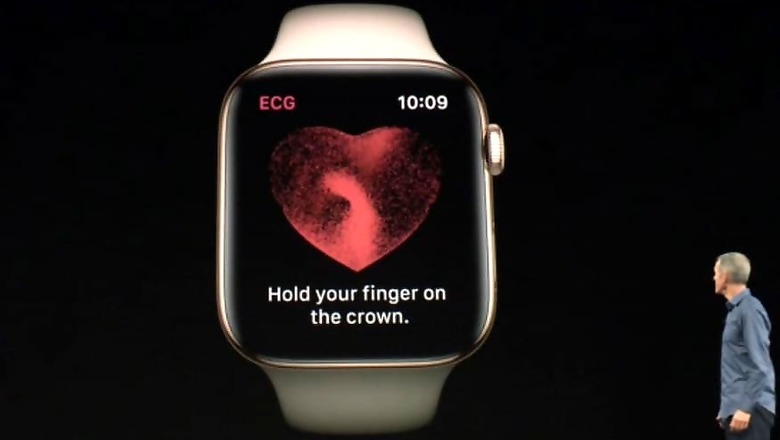
views
A new study conducted by researchers from the Stanford University School of Medicine, has presented preliminary results of the Apple Heart Study. According to study authors, the wearable tech can detect heart rate irregularities, which on subsequent testing were found to be atrial fibrillation, which cause strokes.
Launched in November 2017 by Apple with 4,00,000 participants, the study determined whether a mobile app that uses data from a heart-rate pulse sensor on the Apple Watch can detect atrial fibrillation. According to the paper published in the New England Journal of Medicine and cited by Stanford Medicine News Center, the key findings of the study show that only 0.5 percent of participants received notifications about their irregular pulse, which researchers consider important, "given concerns about potential over-notification."
The study saw participants requiring an Apple Watch of series 1,2 or 3 and an iPhone. More recent wearables sporting an in-built ECG were not included as they were released after the study was launched. Furthermore, the study showed that comparisons between irregular pulse-detection on Apple Watch and simultaneous electrocardiography patch recordings showed the pulse detection algorithm is 71 percent predictive. The study further found that 84 percent of the participants who received irregular pulse notifications were suffering from atrial fibrillation at that time. However, only 34 percent of those who received irregular pulse notifications and followed it with an ECG patch a week later were found to have atrial fibrillation. Researchers say this is because since the irregular heart beat is an intermittent condition, it is not surprising that it went undetected in ECG. Finally, 57 percent of those receiving irregular pulse notification sought medical assistance, the report further elaborated.
Speaking about the same, the study cited Lloyd Minor, MD, Dean of the Stanford School of Medicine saying that the results highlight the role that digital technology can have on health care, adding, “Atrial fibrillation is just the beginning, as this study opens the door to further research into wearable technologies and how they might be used to prevent disease before it strikes — a key goal of precision health.”




















Comments
0 comment